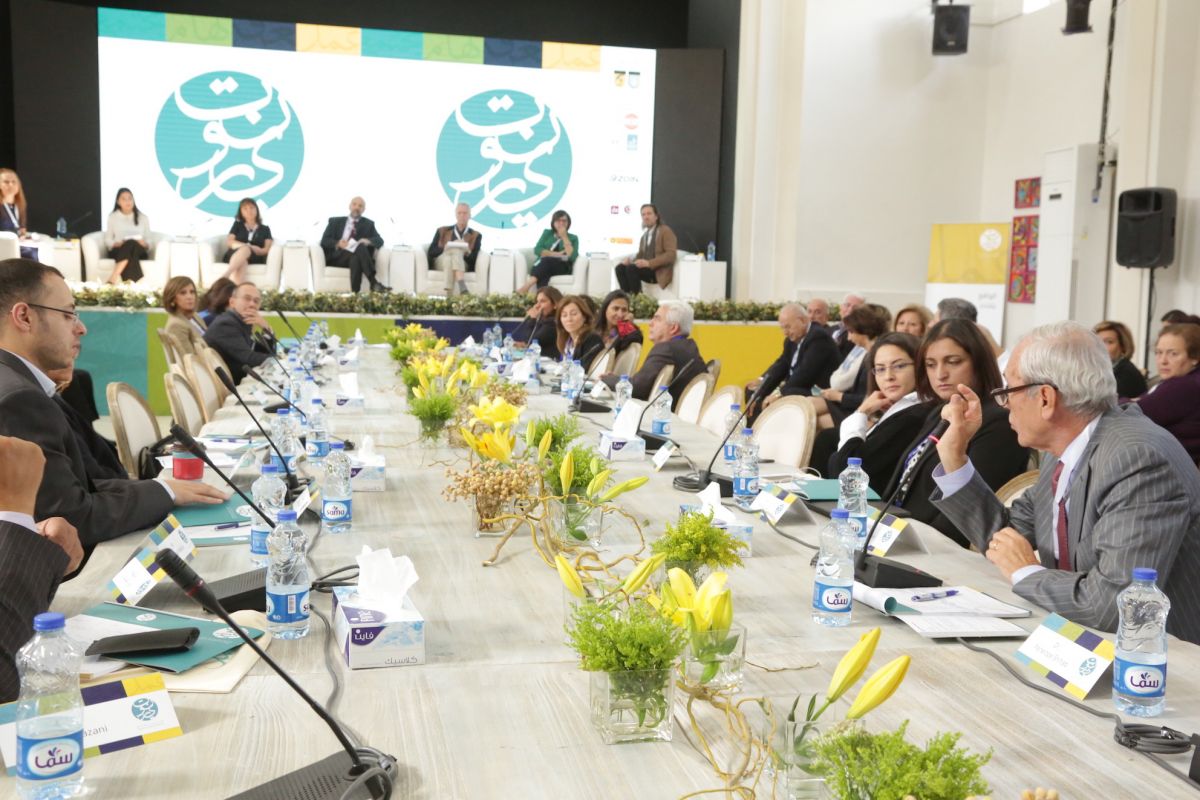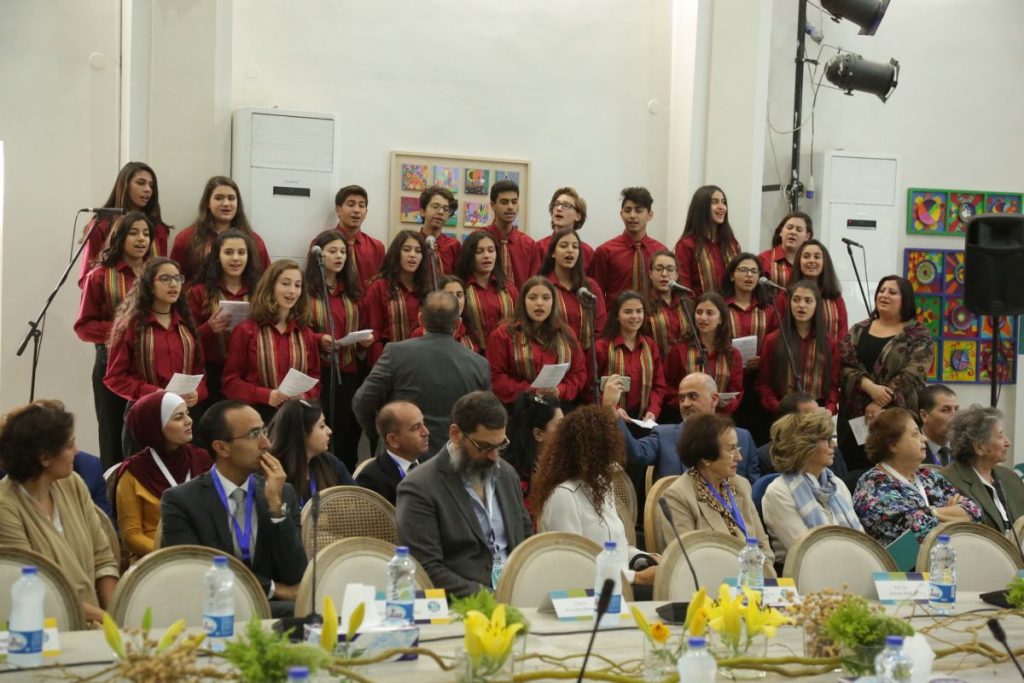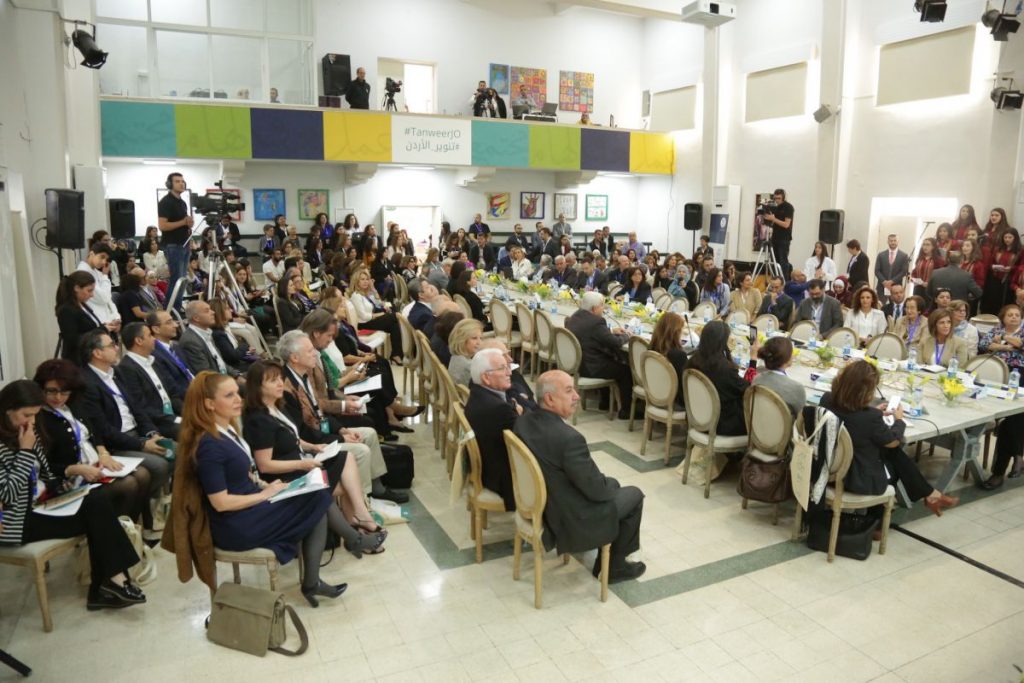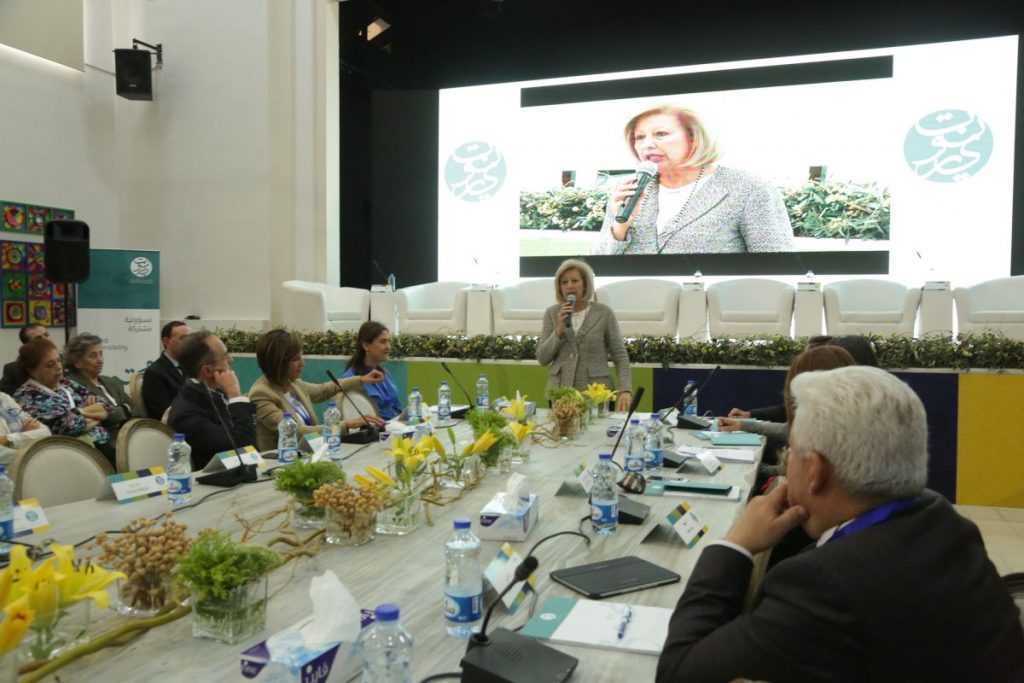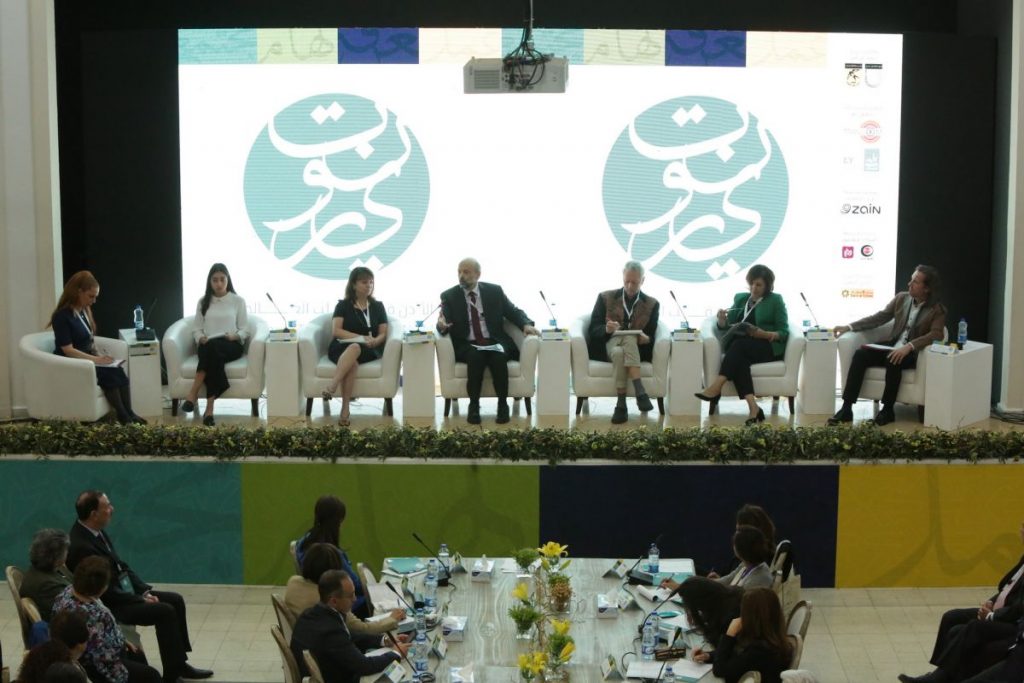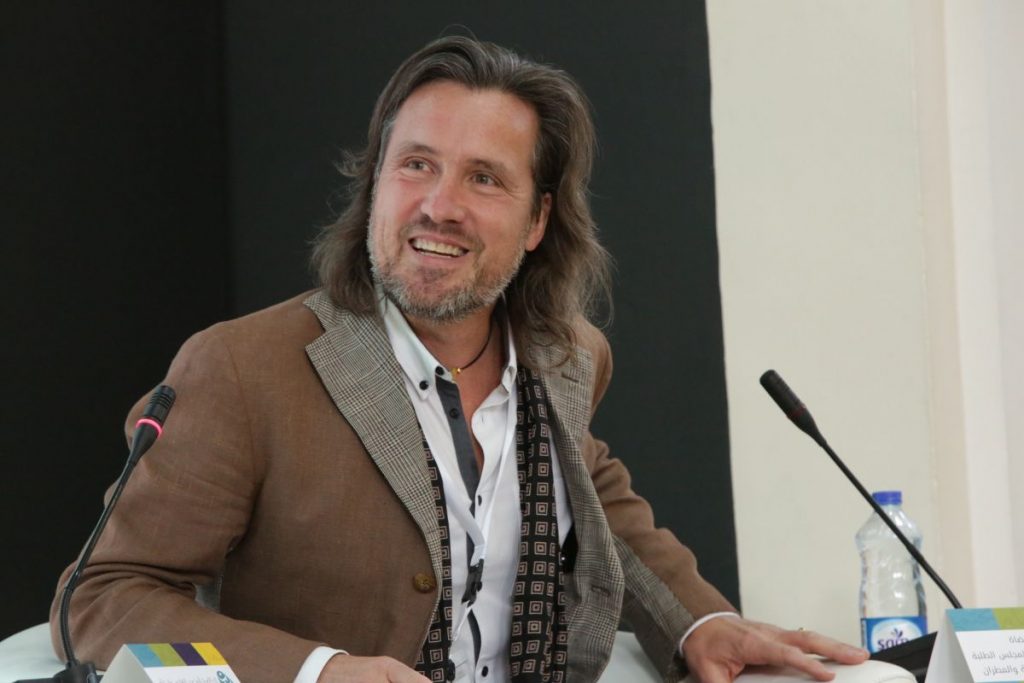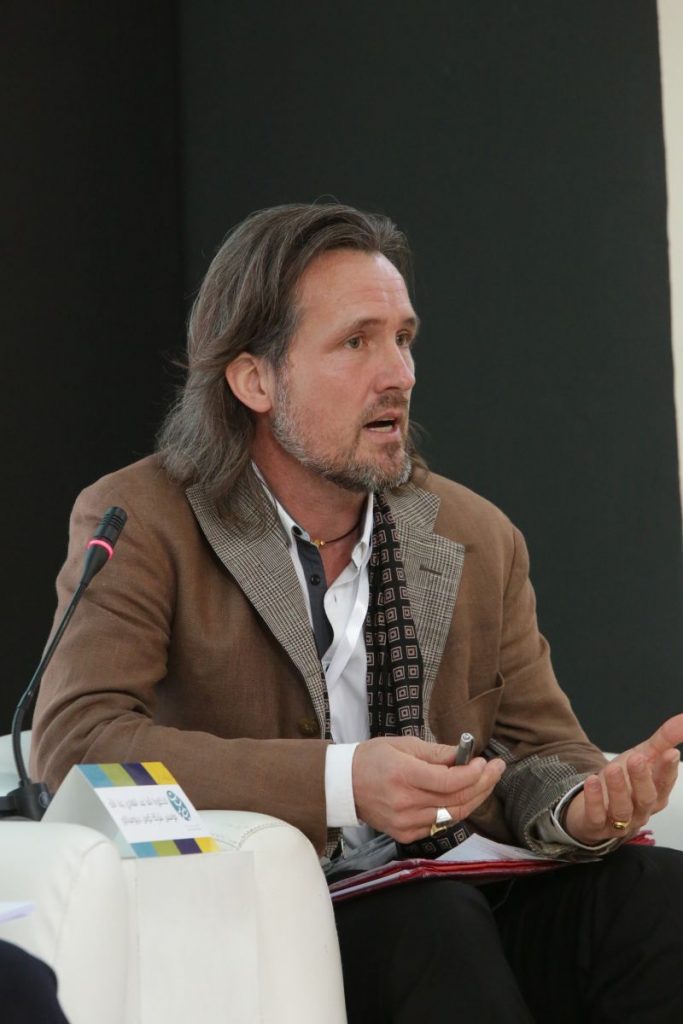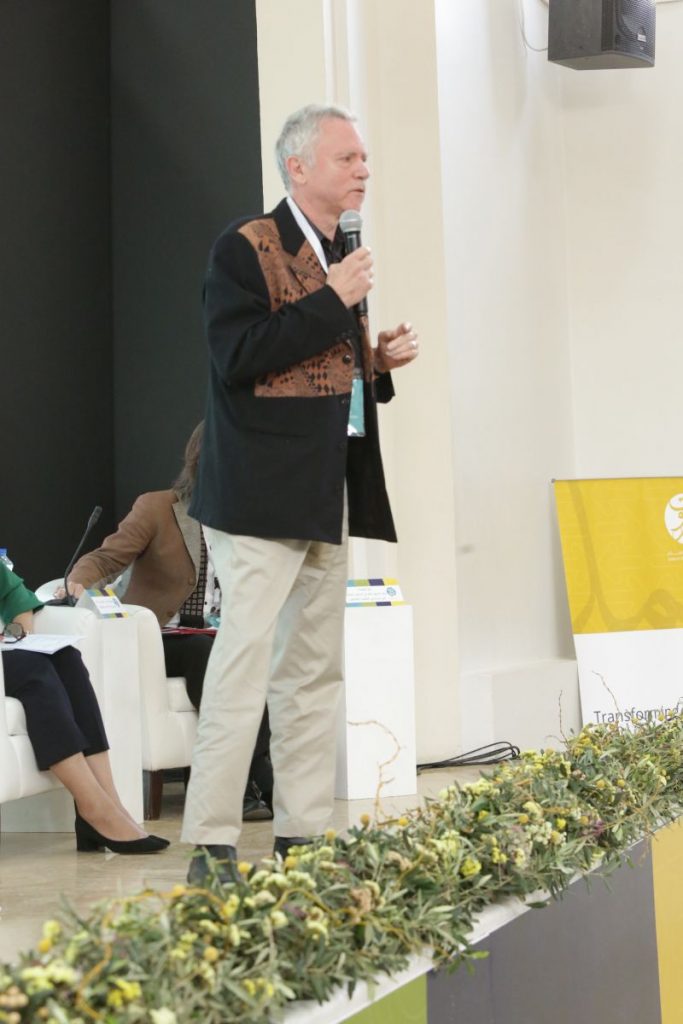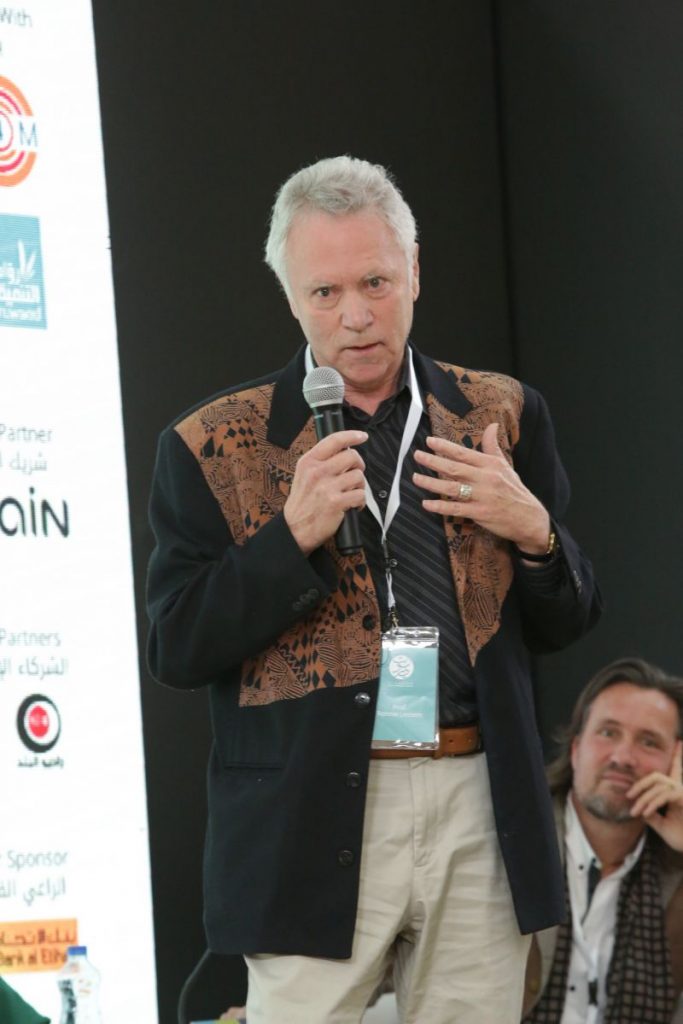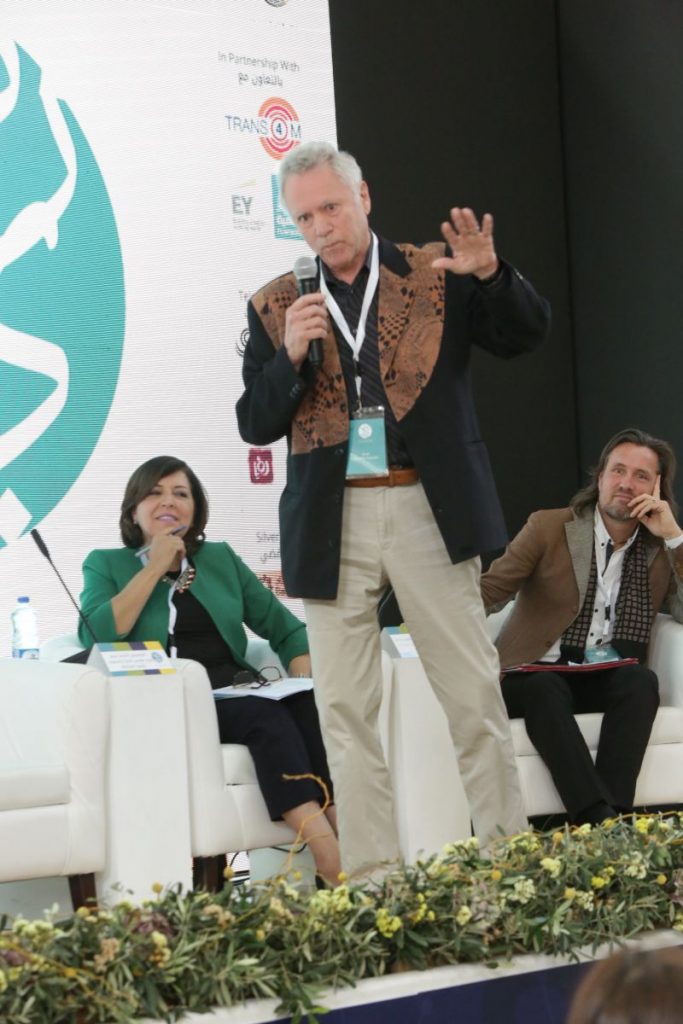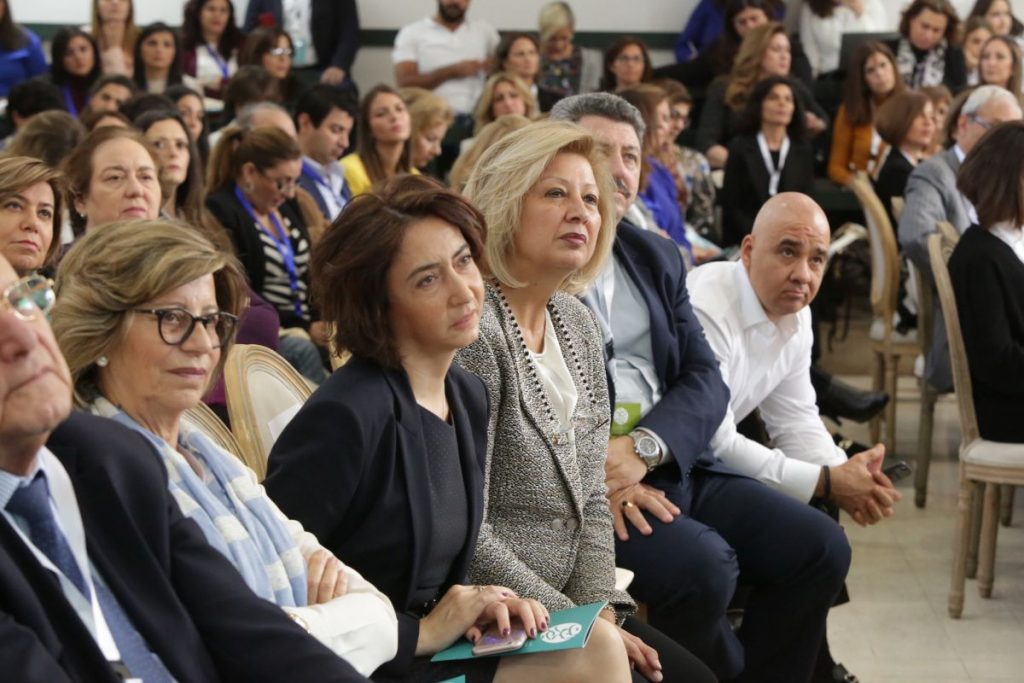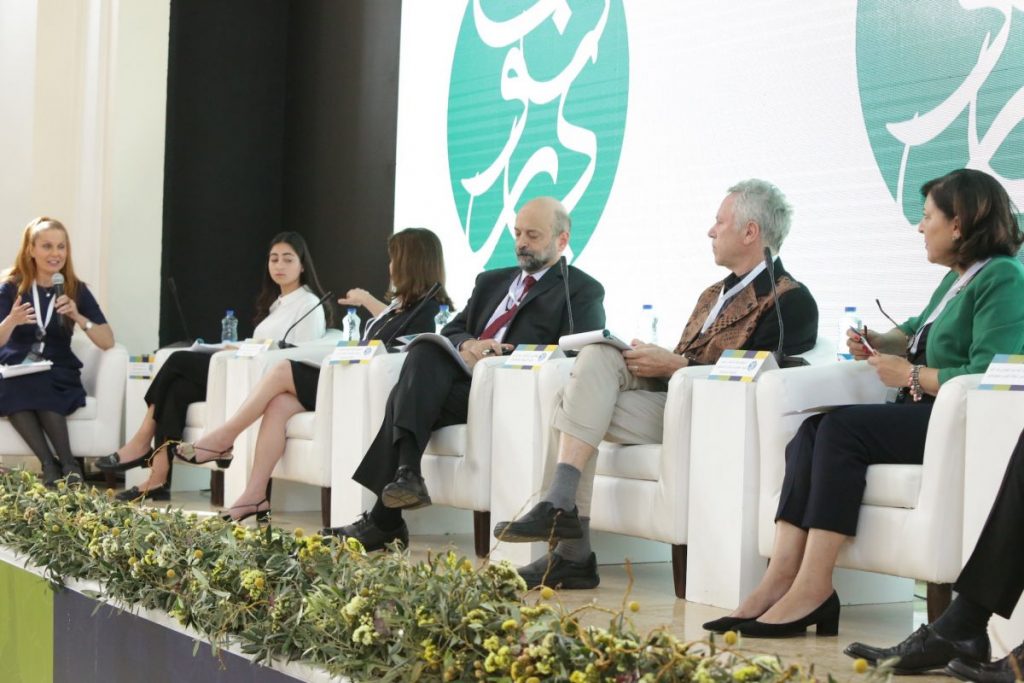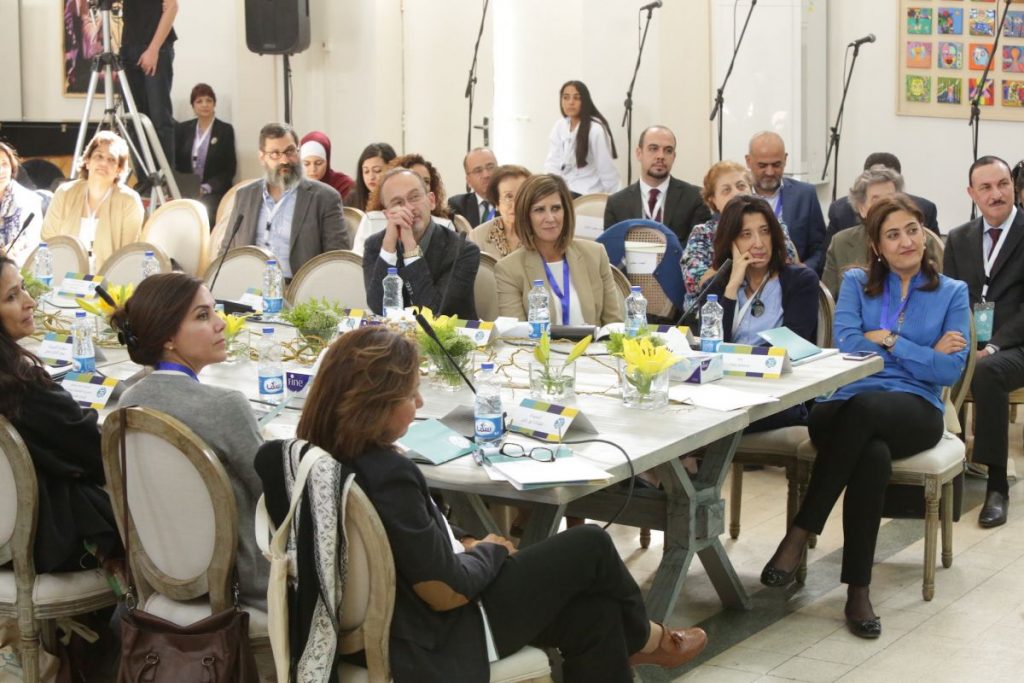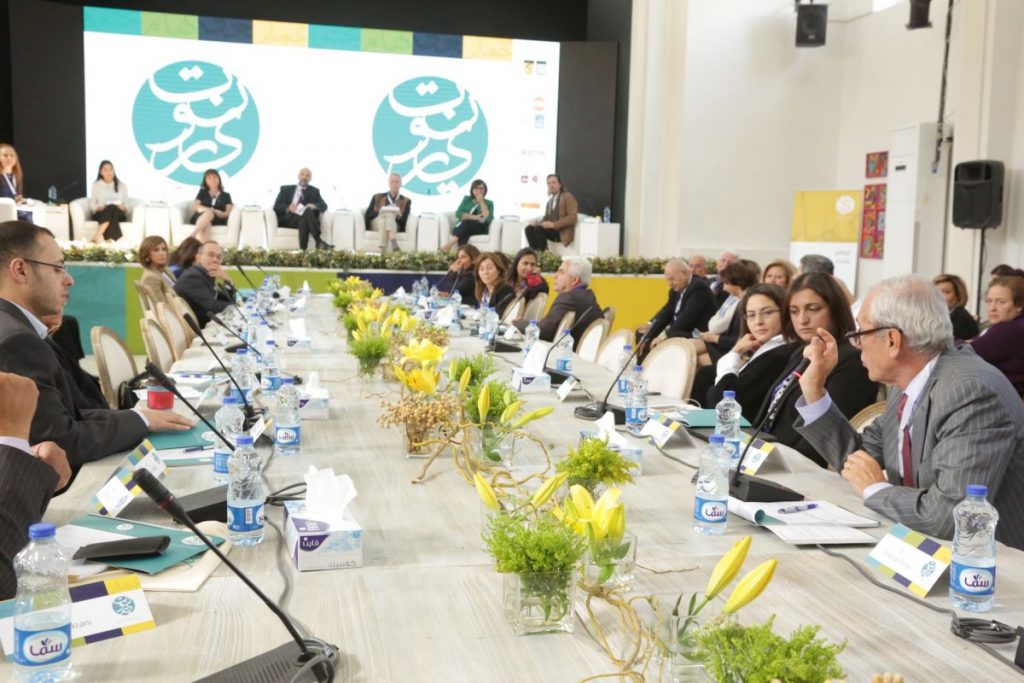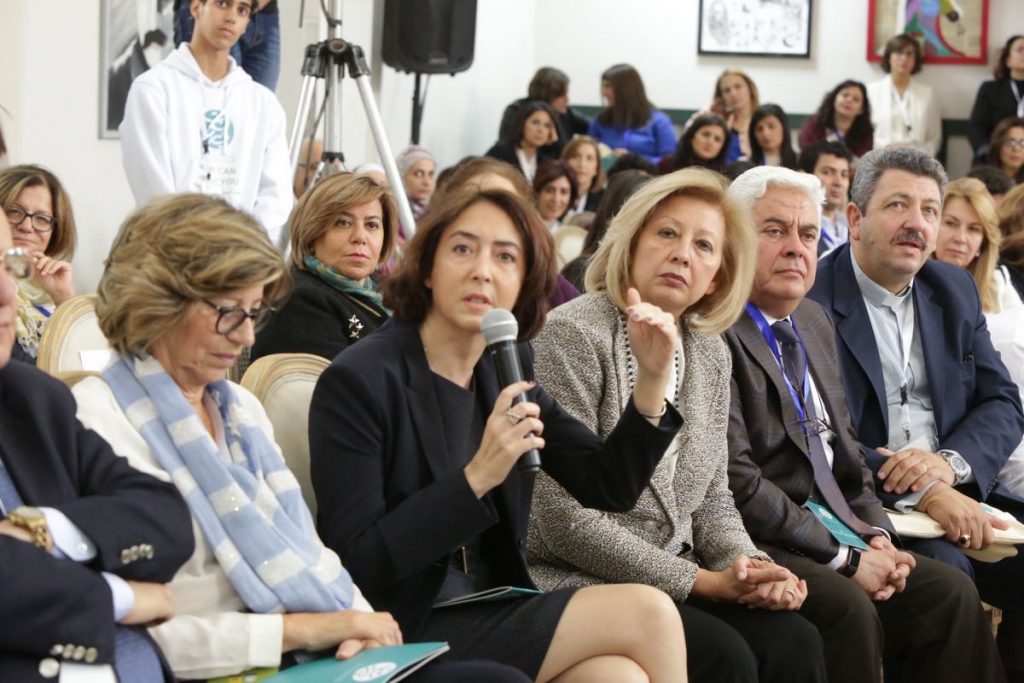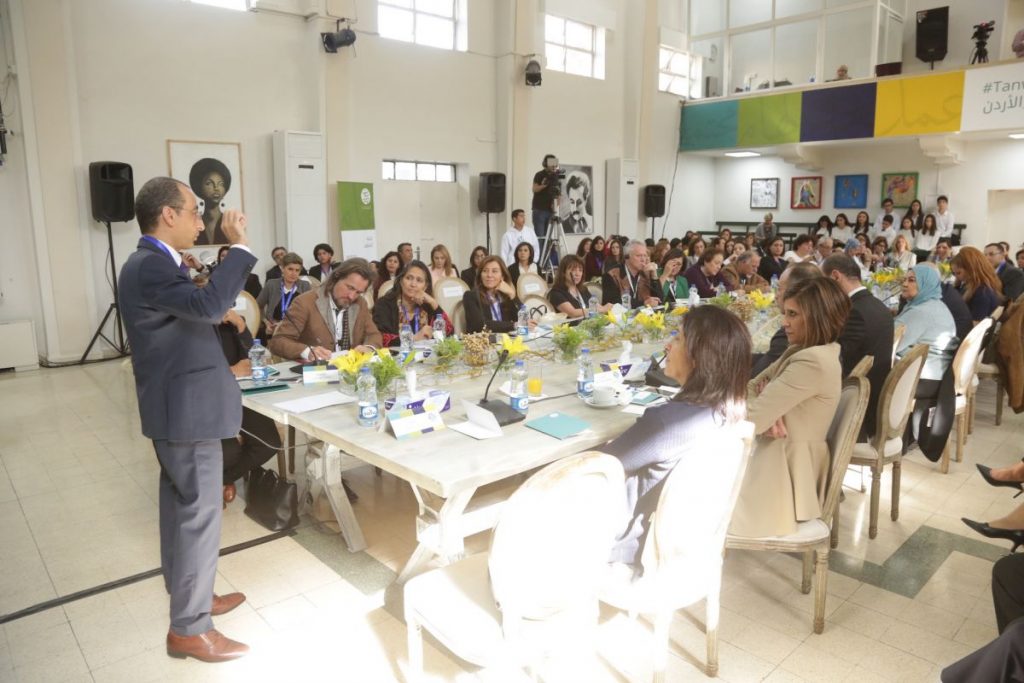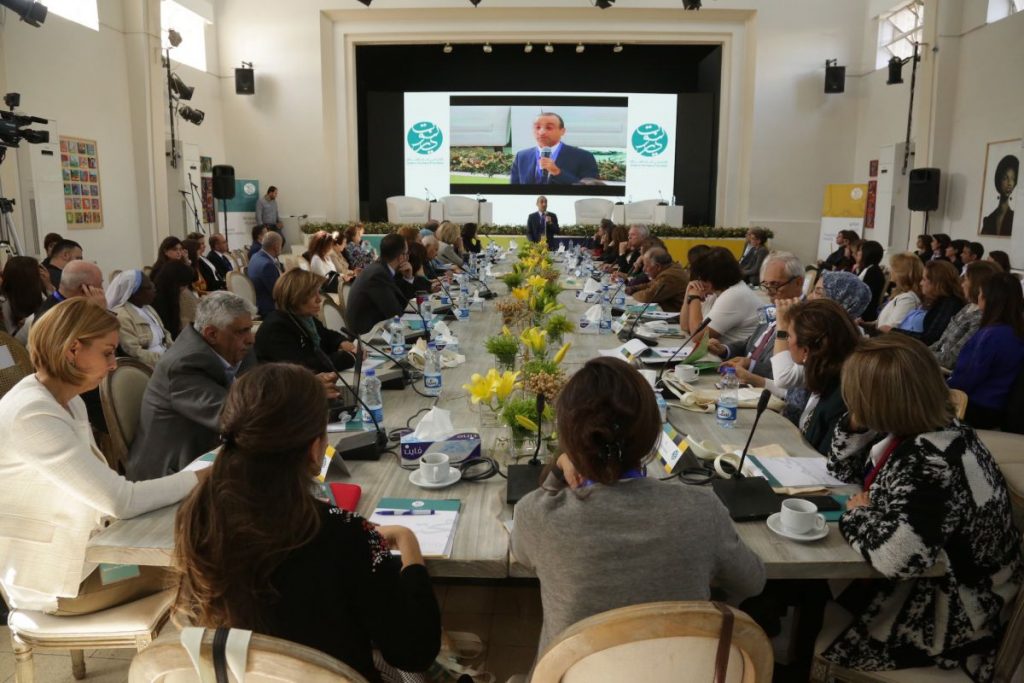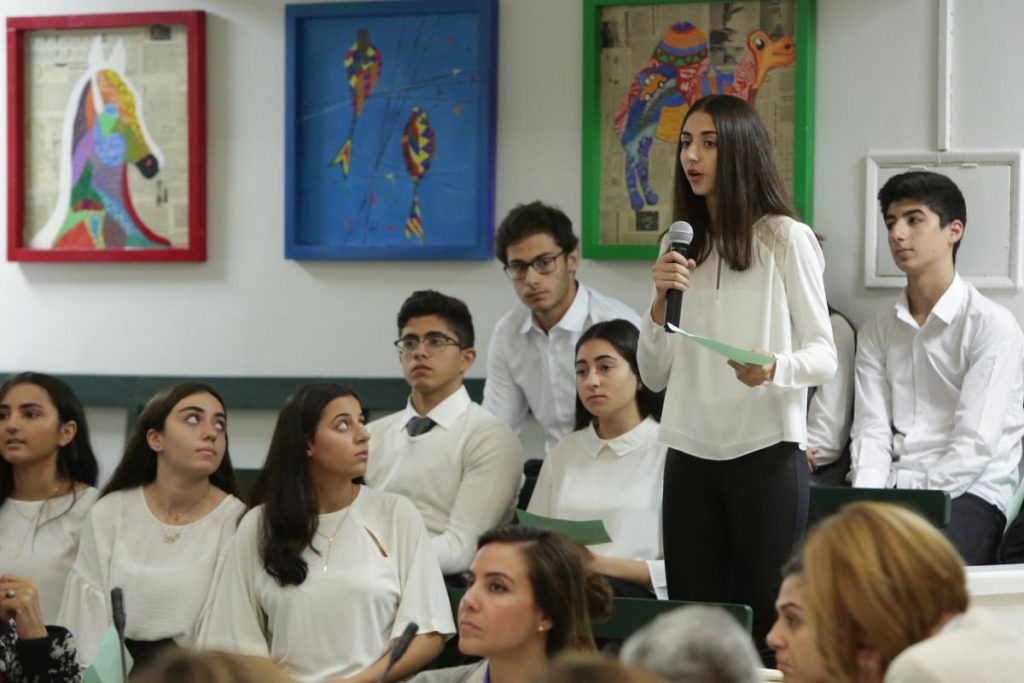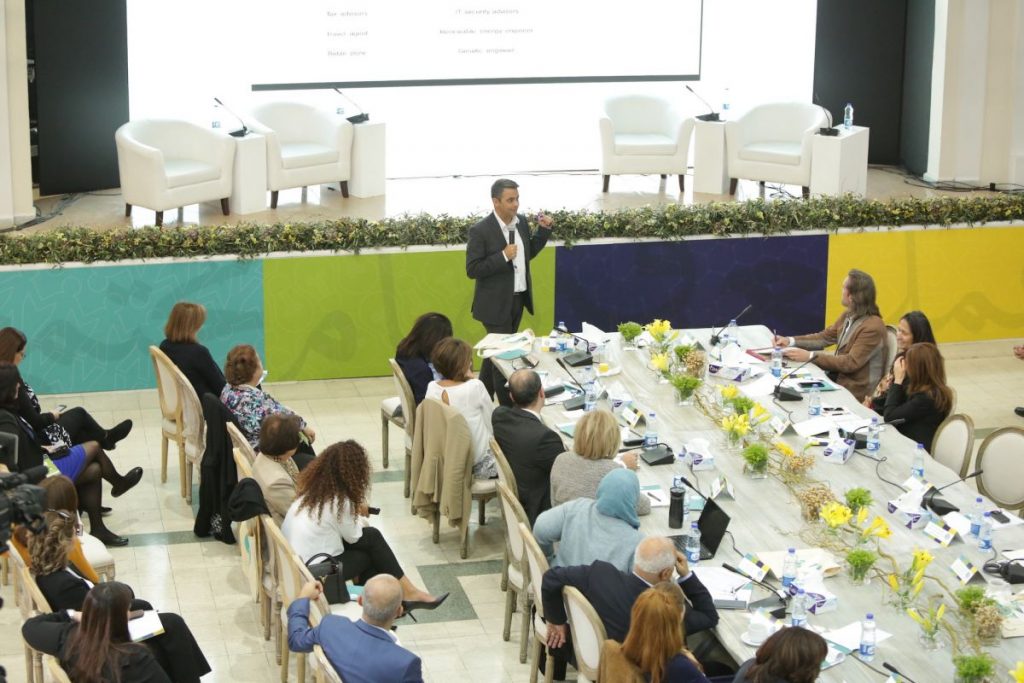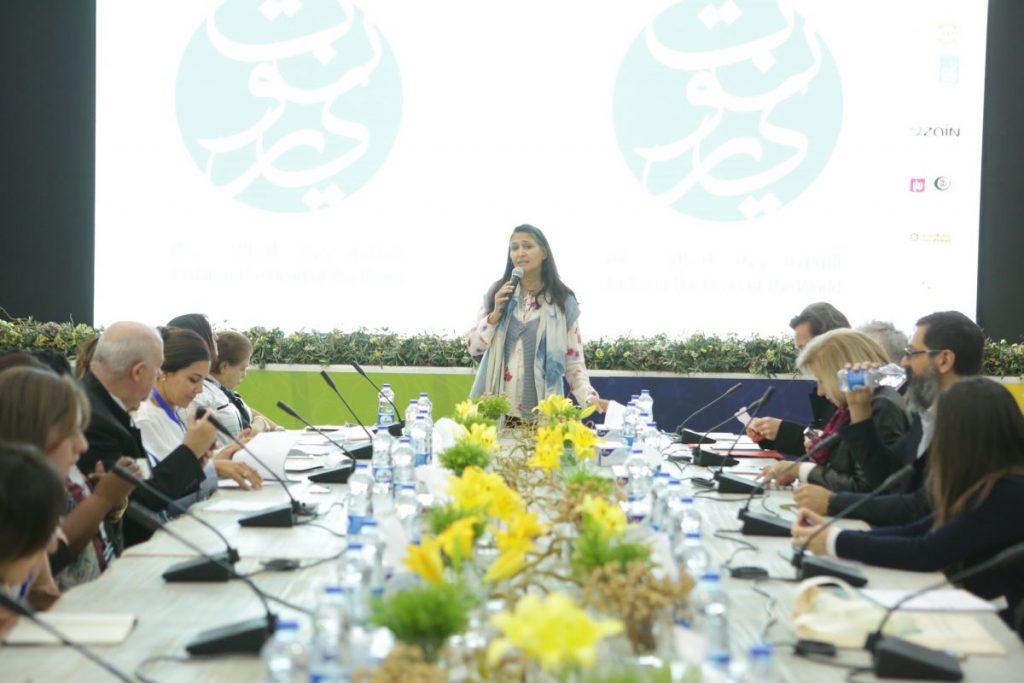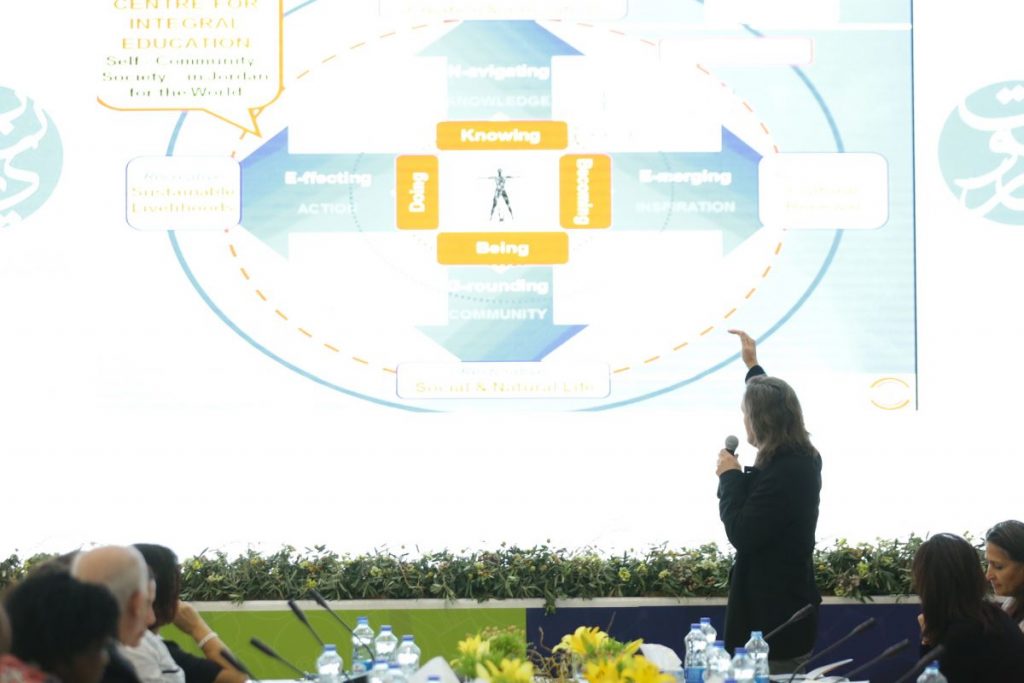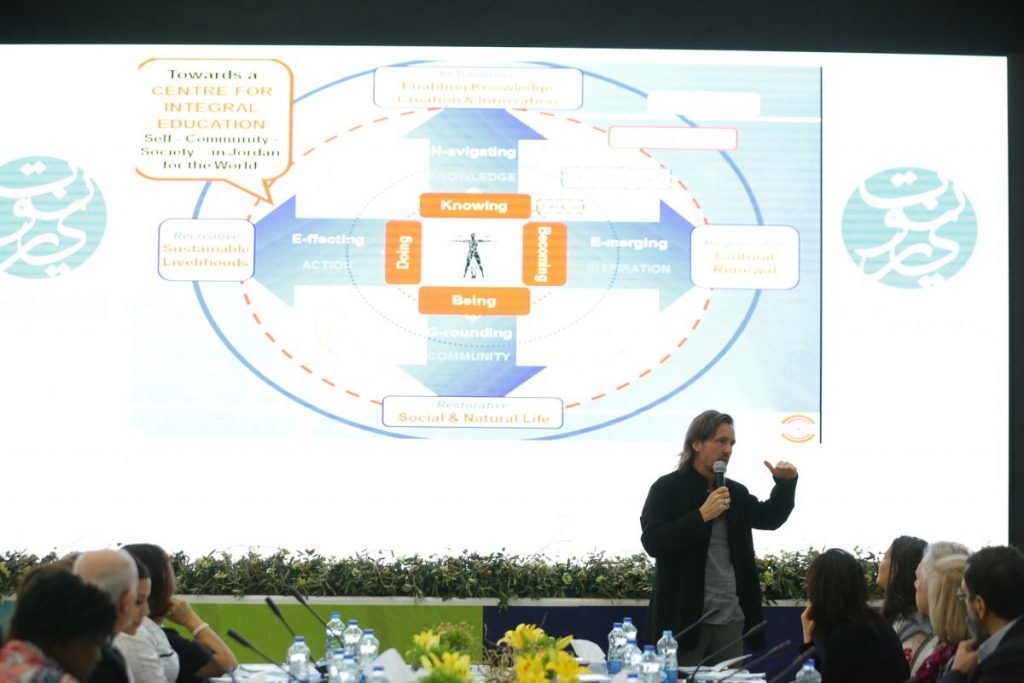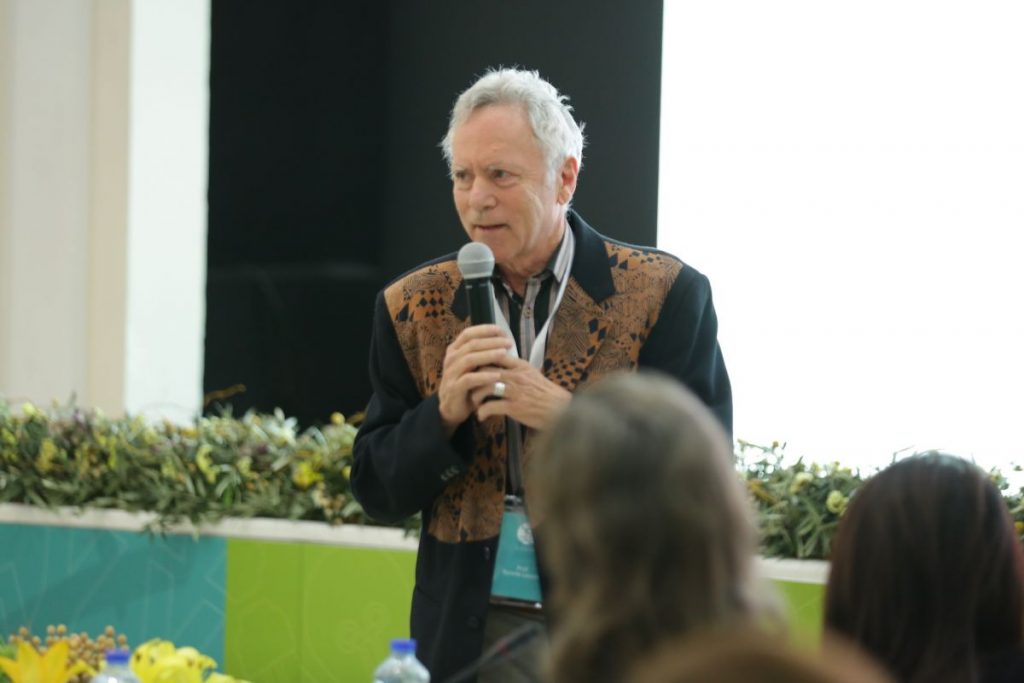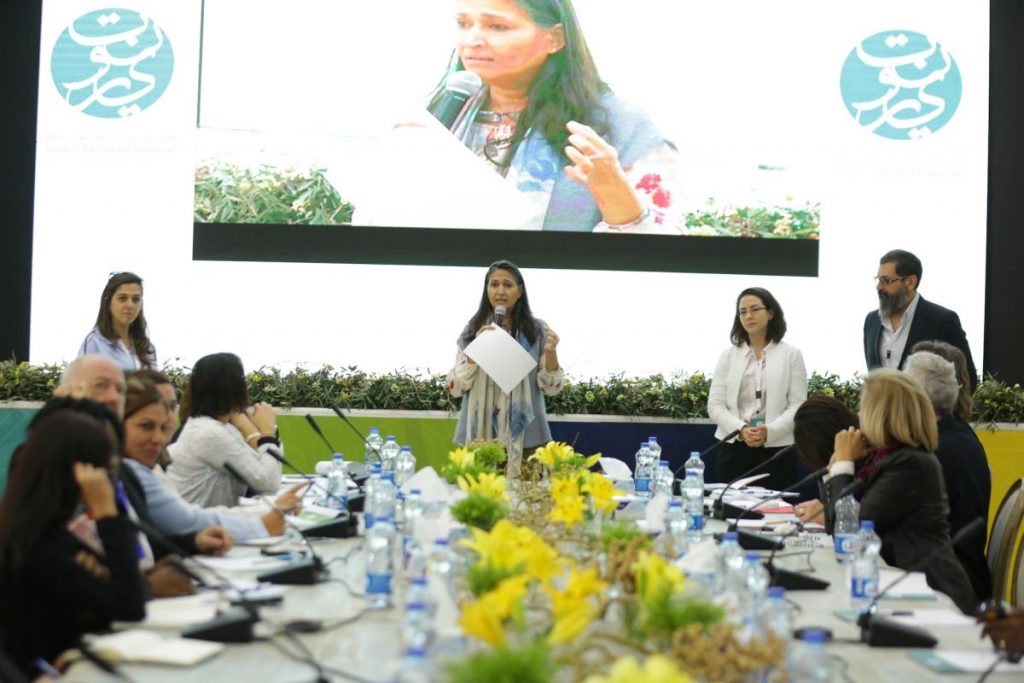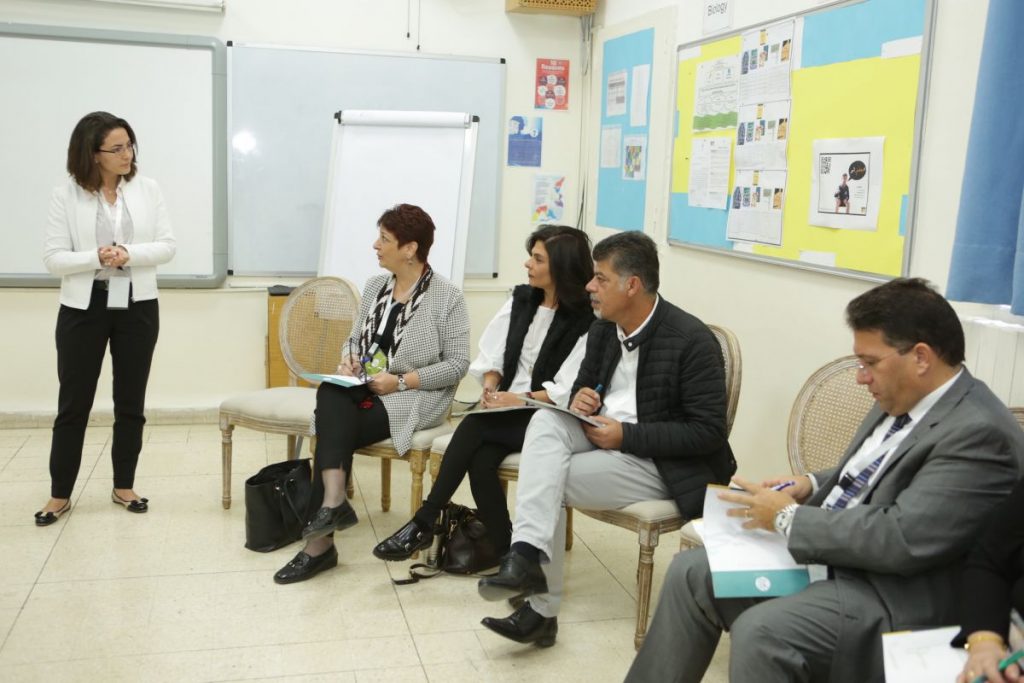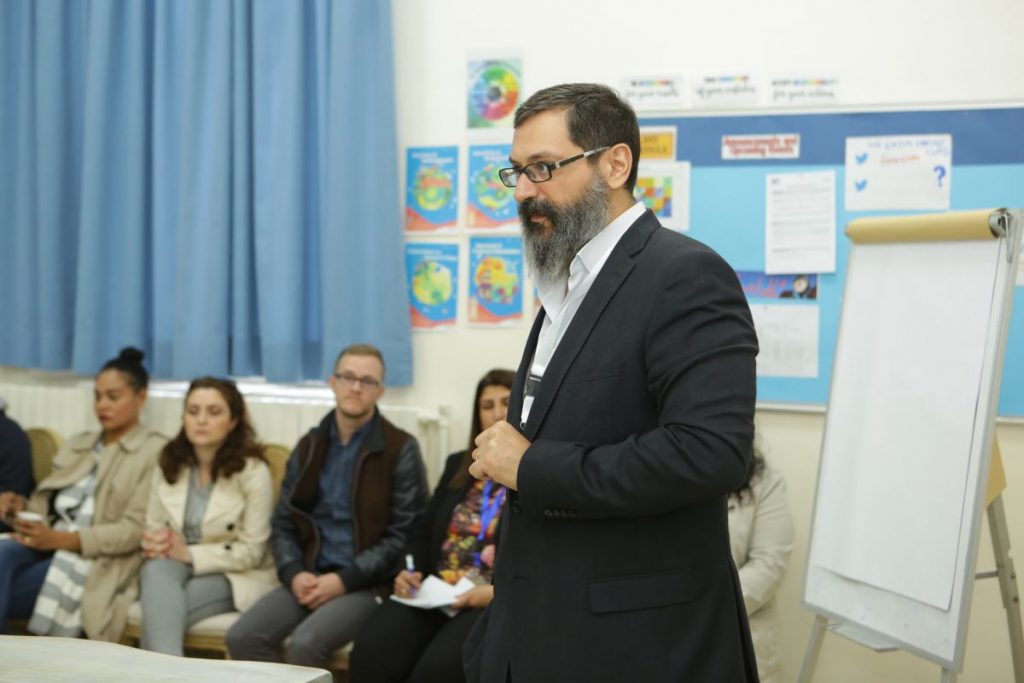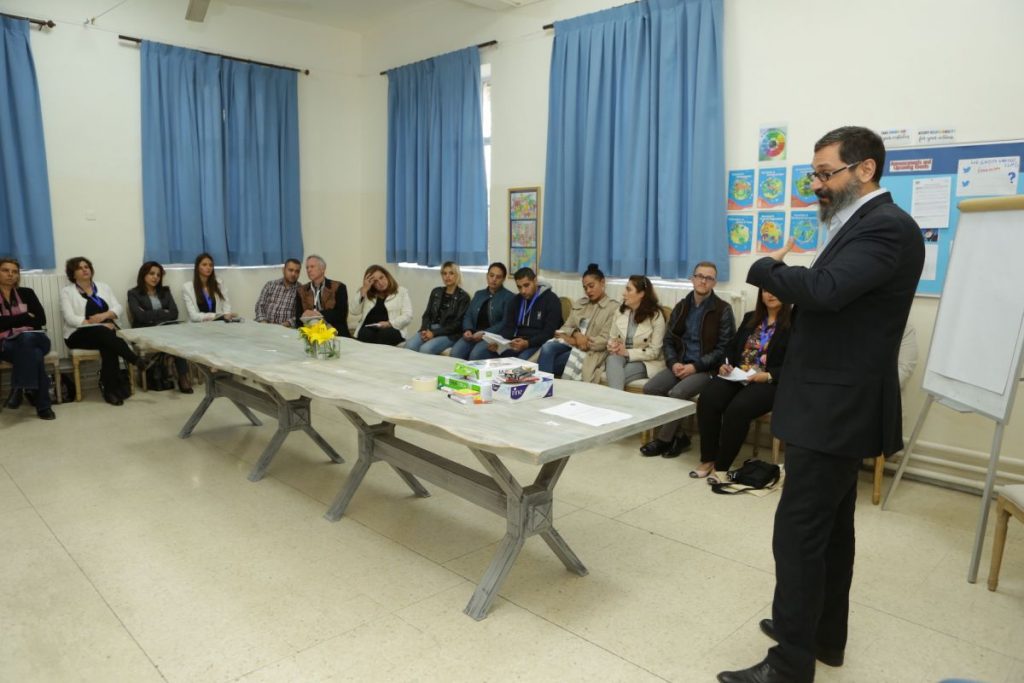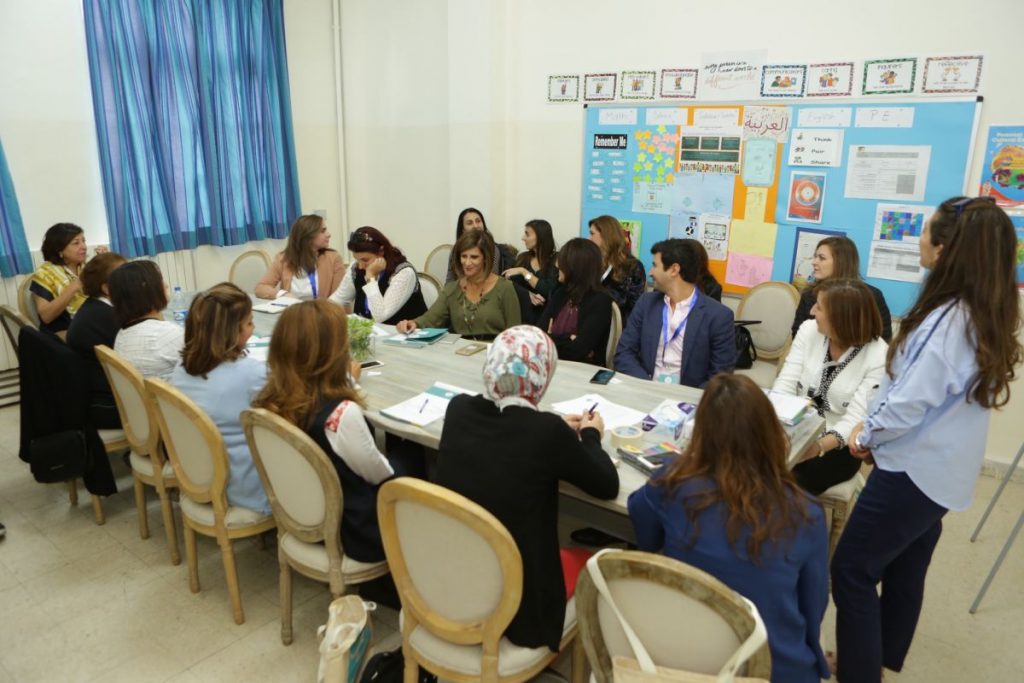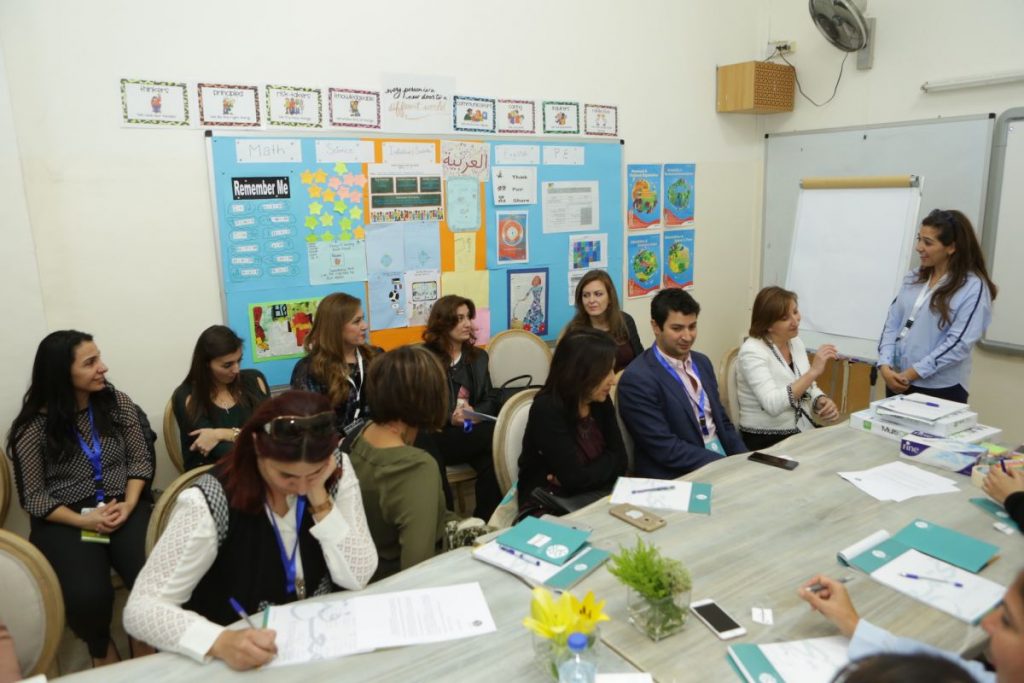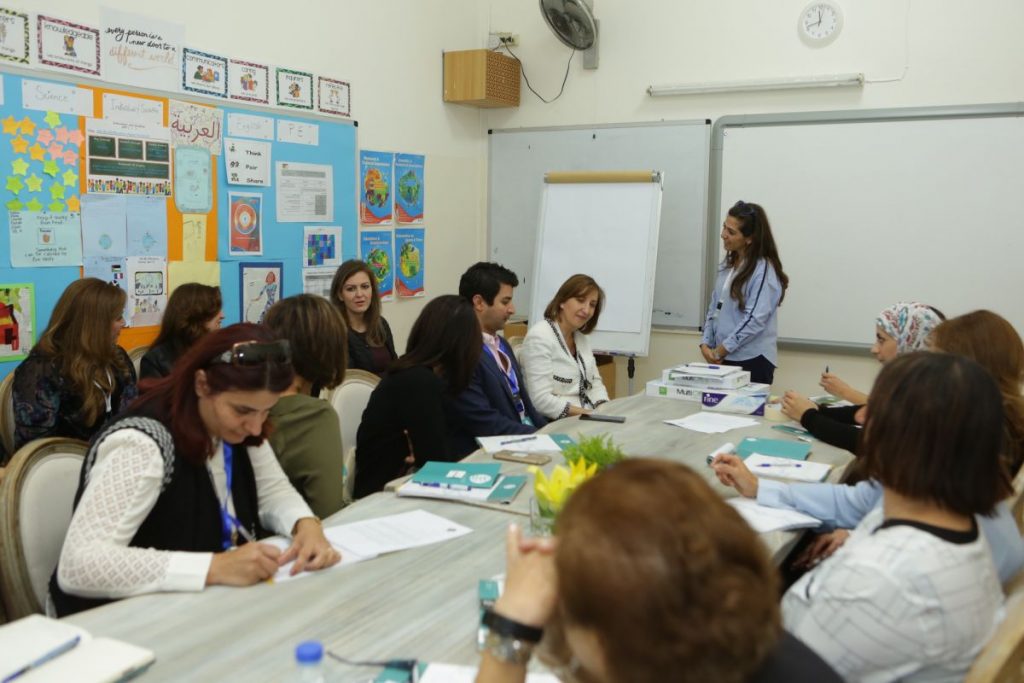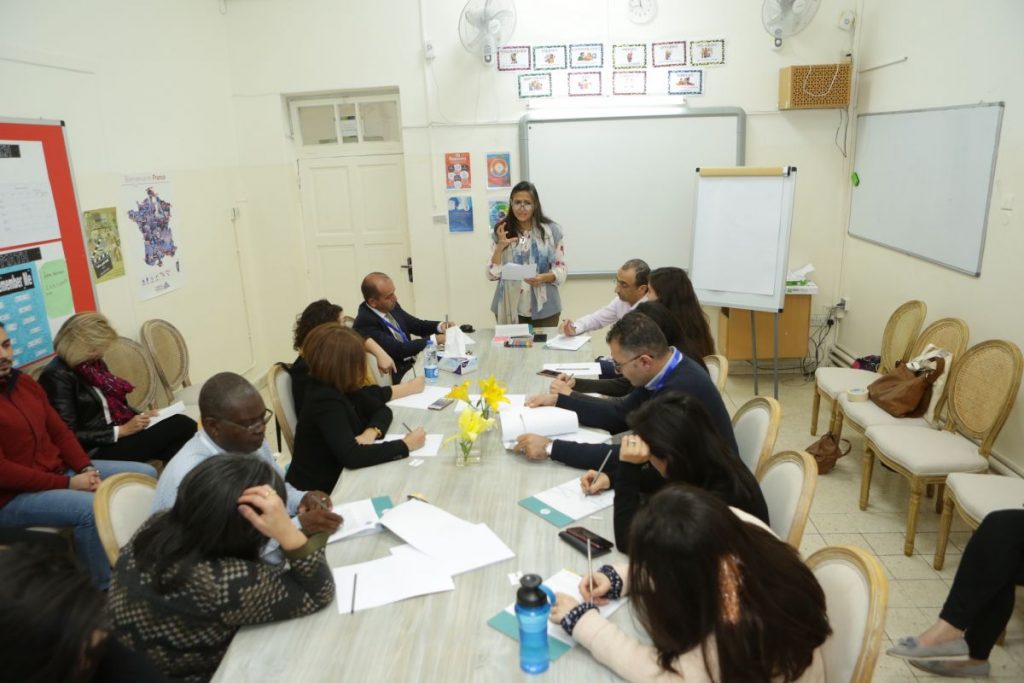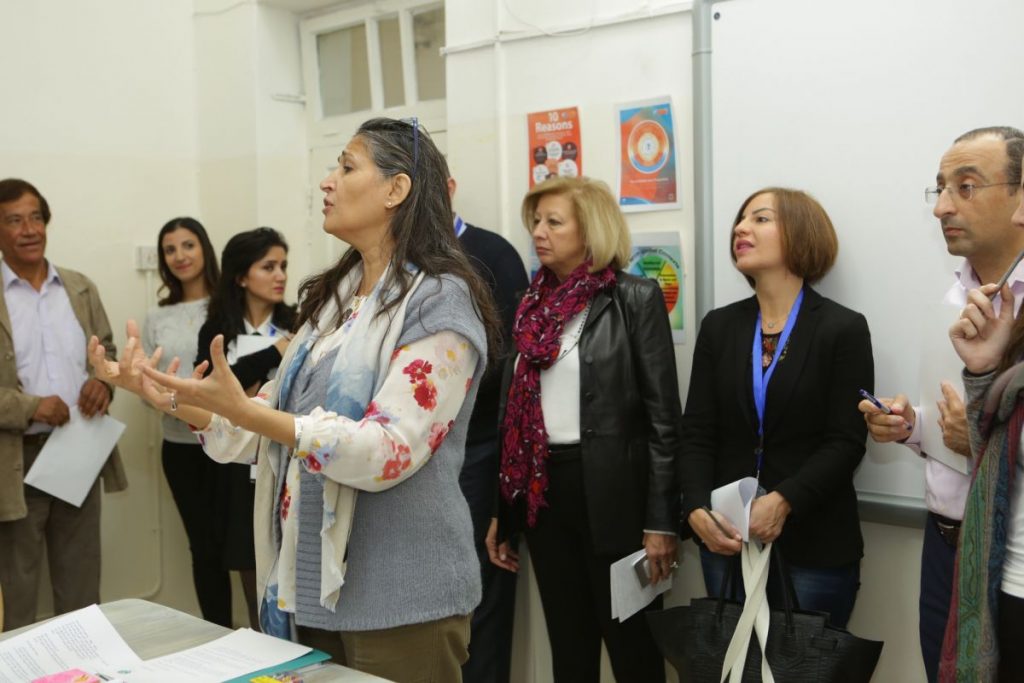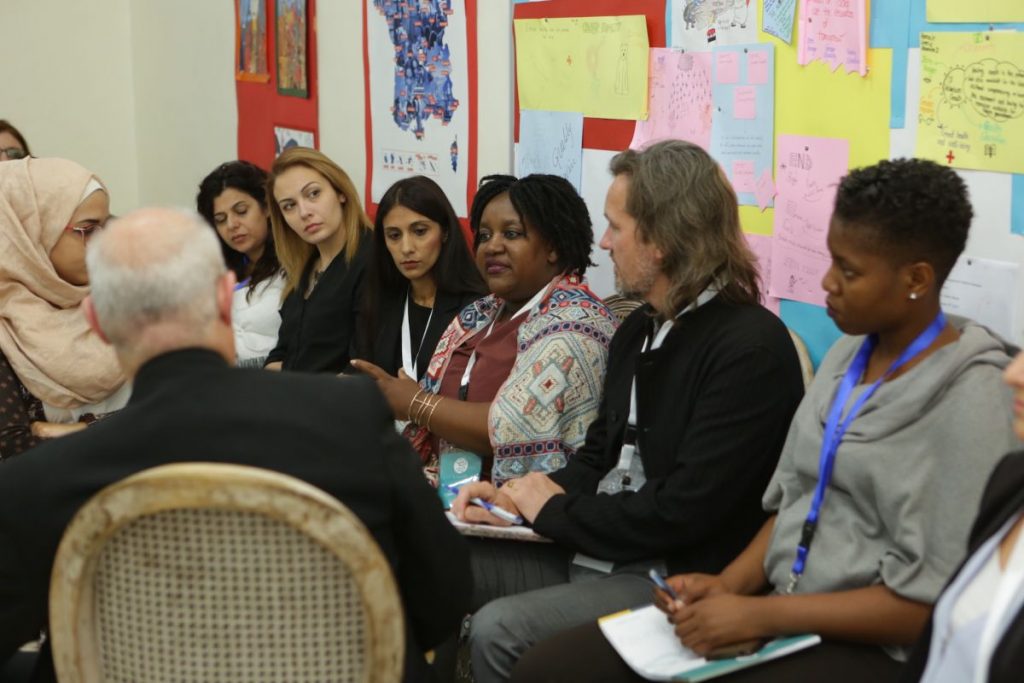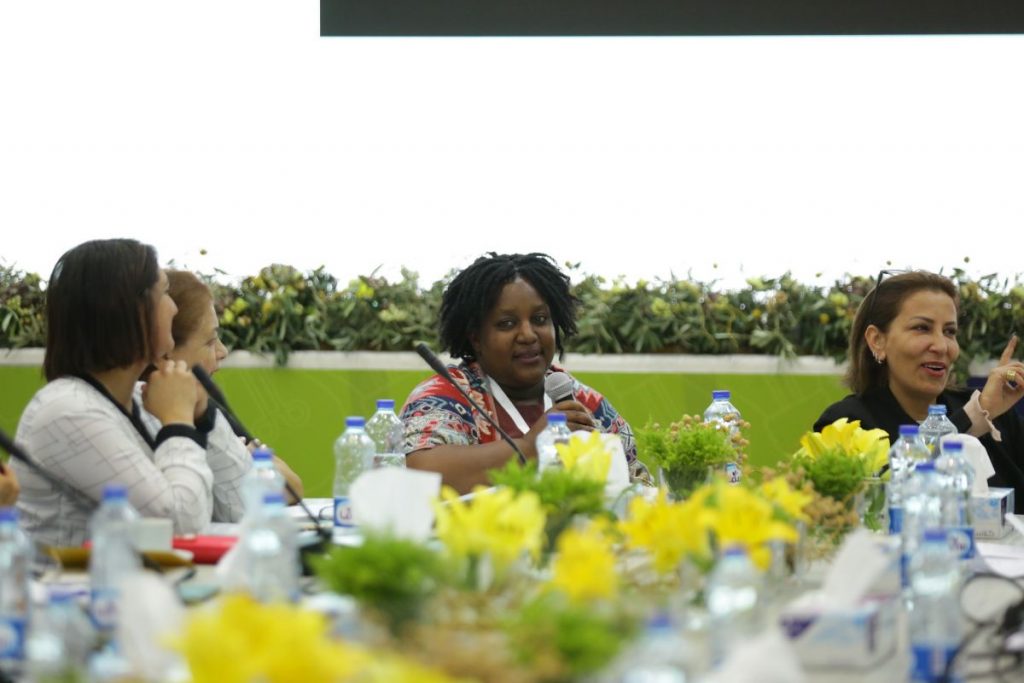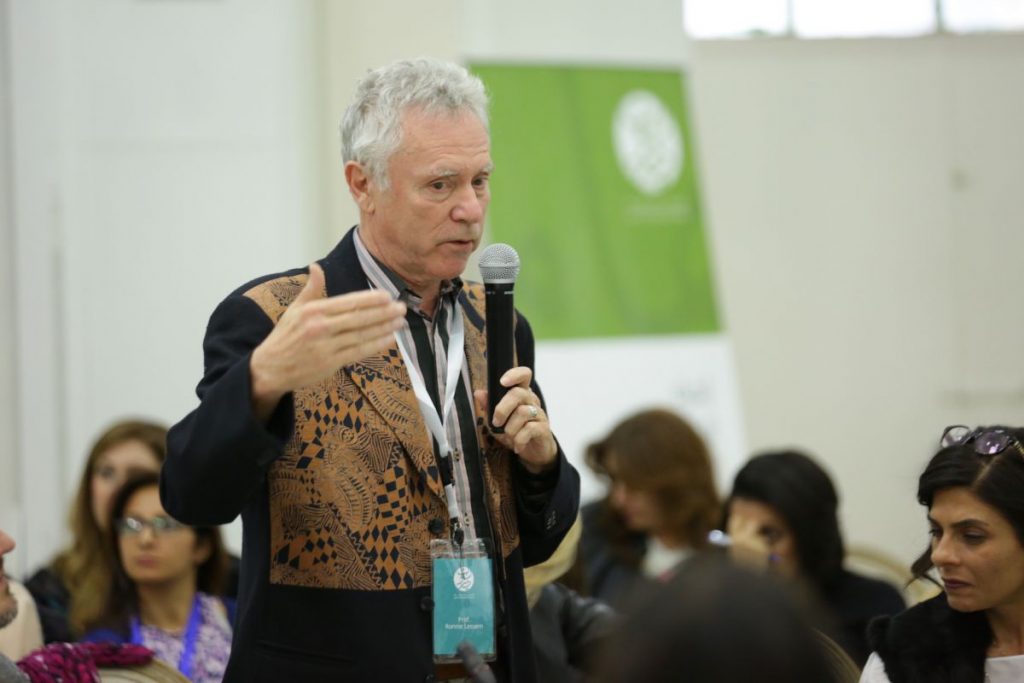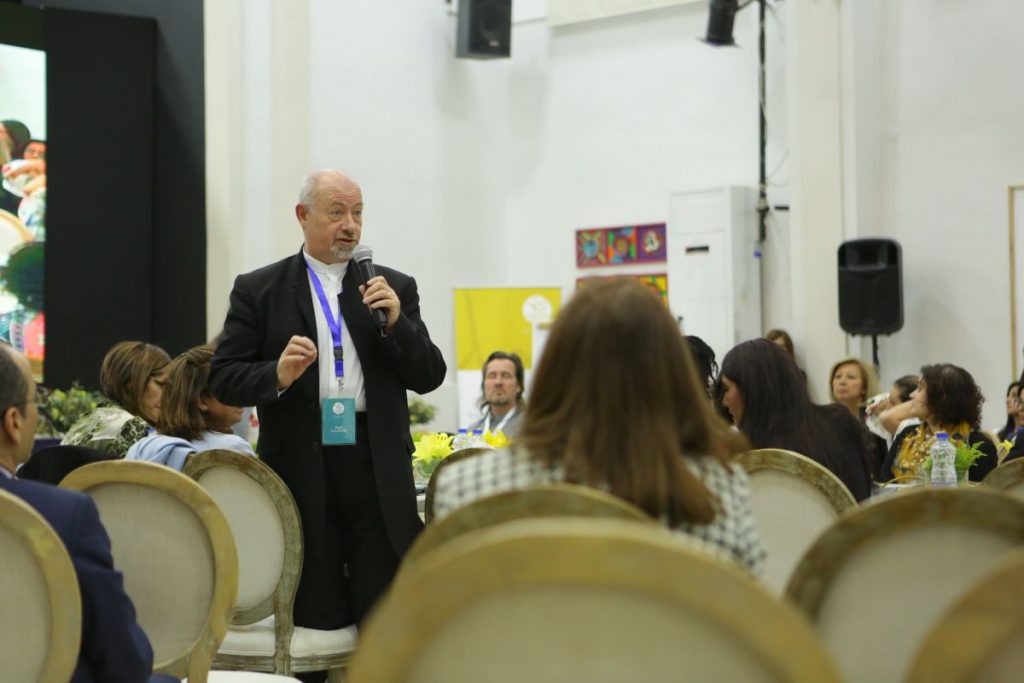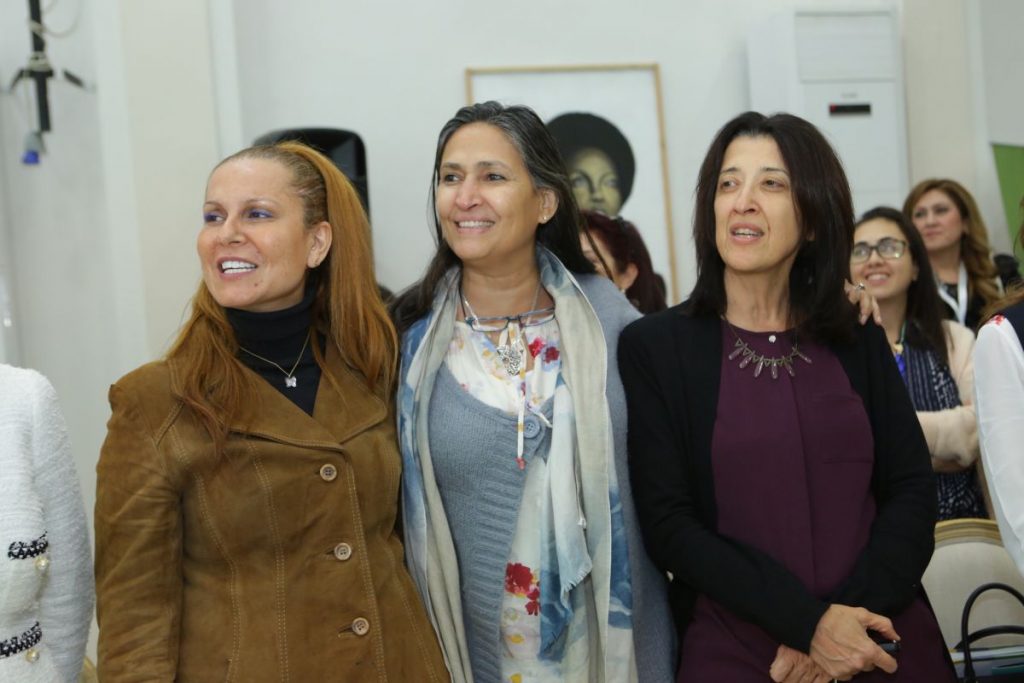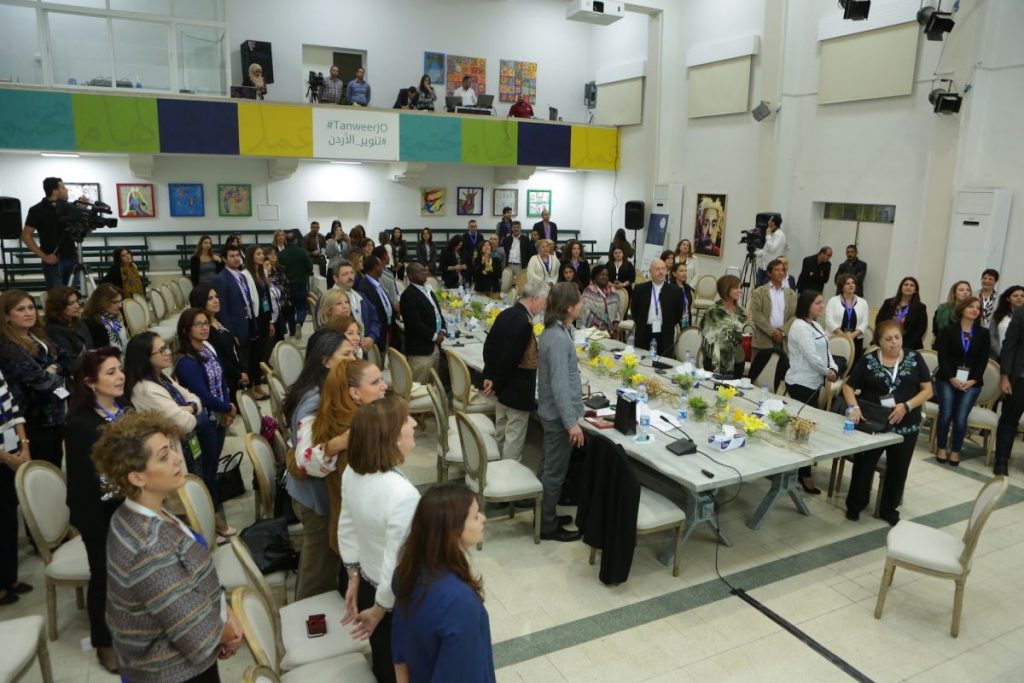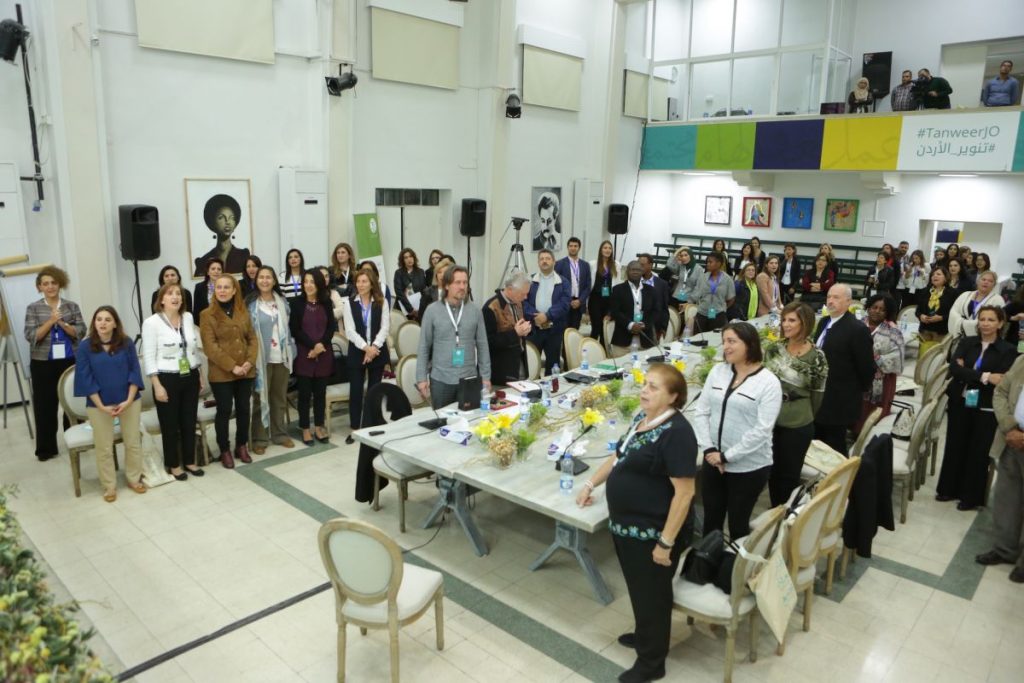Tanweer = Enlightenment: Inspiring Roundtable on Holistic Education for Societal Transformation in Jordan and Beyond
18 November 2017: ASG and BSA Jordan, in partnership with Trans4m, launched the first Roundtable for Educational Renewal in Jordan, which took place in Amman on November 16 and 18
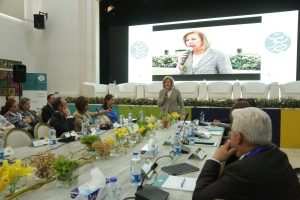 Hosted by the ASG Ahliyyah School for Girls (ASG) and Bishop’s School for Boys (BSA), stewarded by H.E. Senator Haifa Najjar, the schools’ visionary Superintendent, and opened by H.E. Dr. Omar Al-Razzaz, the Minister for Education and Chairman of the Jordanian National Committee of UNESCO, the two-days roundtable brought over 150 high level educators, civic society activists, government officials, members of the Jordanian business community and students together to begin a dialogue to renew the education system in Jordan.
Hosted by the ASG Ahliyyah School for Girls (ASG) and Bishop’s School for Boys (BSA), stewarded by H.E. Senator Haifa Najjar, the schools’ visionary Superintendent, and opened by H.E. Dr. Omar Al-Razzaz, the Minister for Education and Chairman of the Jordanian National Committee of UNESCO, the two-days roundtable brought over 150 high level educators, civic society activists, government officials, members of the Jordanian business community and students together to begin a dialogue to renew the education system in Jordan.
The objective of the roundtable was to initiate a process for “holistic education to promote societal transformation for positive change”. The title of the roundtable was Tanweer, meaning “to enlighten” in Arabic, thereby evoking the enlightenment era of the Arab world of the 9th to 13th century (“The Golden Age”) for our current times. The hosting schools ASG/BSA see such “enlightenment” at the core of their educational pursuits and mission.
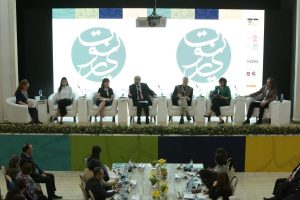 ASG and BSA themselves currently undertake a research-to-innovation initiative, aligned with an action research process, with the objective to articulate and further evolve their own holistic educational model. This process is co-led by Laila Abdul Majeed, herself a Trans4m Fellow, who is driving, together with group of internal change agents, the Hikma (Wisdom) Initiative in ASG/BSA. She does that with the help of her Trans4m PhD, aligned with a collective PHD (Process for Holistic Development), aspiring to include all members of the schools in this transformative process. The Hikma Circle process, which takes its name from the House of Wisdom tradition during the original Arab Renaissance, is a process to build trust, solidarity and community; to enable participants to connect to (hi)story, personal and cultural strengths and to re-imagine the future of self, school and society; to co-create new knowledge and enable social innovation in education; and to apply such innovation into collective practice – altogether with a view to renew self, school and society.
ASG and BSA themselves currently undertake a research-to-innovation initiative, aligned with an action research process, with the objective to articulate and further evolve their own holistic educational model. This process is co-led by Laila Abdul Majeed, herself a Trans4m Fellow, who is driving, together with group of internal change agents, the Hikma (Wisdom) Initiative in ASG/BSA. She does that with the help of her Trans4m PhD, aligned with a collective PHD (Process for Holistic Development), aspiring to include all members of the schools in this transformative process. The Hikma Circle process, which takes its name from the House of Wisdom tradition during the original Arab Renaissance, is a process to build trust, solidarity and community; to enable participants to connect to (hi)story, personal and cultural strengths and to re-imagine the future of self, school and society; to co-create new knowledge and enable social innovation in education; and to apply such innovation into collective practice – altogether with a view to renew self, school and society.
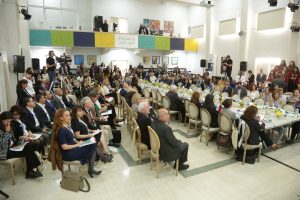 This ambitious initiaitve set the tone for the roundtable itself. In Haifa Najjar’s words: “This roundtable discussion was launched as we, at our schools, have come to realize the dire need to review our current educational paradigms critically, and tear down walls of isolation between society and the educational system. We strongly believe that Jordan, the Arab world, and the international community need to adopt a comprehensive and enlightened perspective on education to pursue integral and genuine change in our communities. … Our ultimate goal is to produce new approaches in education that comply with the needs of individuals and societies in a creative and innovative manner. This will lead to a clear action plan that supports our integral approach to education. Therefore, we believe shared dialogue is the first step in our national efforts to embrace a clear vision and deep understanding of our reality. It is only through the collaboration of a variety of sectors to support integral education, that we may reconstruct and transform our society.”
This ambitious initiaitve set the tone for the roundtable itself. In Haifa Najjar’s words: “This roundtable discussion was launched as we, at our schools, have come to realize the dire need to review our current educational paradigms critically, and tear down walls of isolation between society and the educational system. We strongly believe that Jordan, the Arab world, and the international community need to adopt a comprehensive and enlightened perspective on education to pursue integral and genuine change in our communities. … Our ultimate goal is to produce new approaches in education that comply with the needs of individuals and societies in a creative and innovative manner. This will lead to a clear action plan that supports our integral approach to education. Therefore, we believe shared dialogue is the first step in our national efforts to embrace a clear vision and deep understanding of our reality. It is only through the collaboration of a variety of sectors to support integral education, that we may reconstruct and transform our society.”
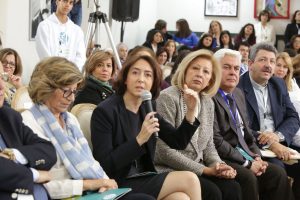
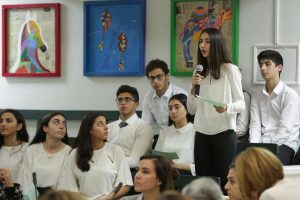 The roundtable followed a rich, and highly interactive format, with engaging panels and short presentations, continuously intersected by critical reflections by the audience. That was followed by facilitated small-group design sessions, aiming to capture the voices of all participants. Despite the wide range of diverse perspective, there was a “felt buzz” and excitement in the audience, to take this process further. In one of the groups, for example, participants – most especially the language teachers from the two schools who saw themselves as natural intermediaries – reviewed how archaeology, anthropology, sociology, theology, linguistics and cultural studies might all become part of a new curriculum, spearheaded by a Centre for Inter-Cultural Studies and building on the multifaceted civilisations of the region.
The roundtable followed a rich, and highly interactive format, with engaging panels and short presentations, continuously intersected by critical reflections by the audience. That was followed by facilitated small-group design sessions, aiming to capture the voices of all participants. Despite the wide range of diverse perspective, there was a “felt buzz” and excitement in the audience, to take this process further. In one of the groups, for example, participants – most especially the language teachers from the two schools who saw themselves as natural intermediaries – reviewed how archaeology, anthropology, sociology, theology, linguistics and cultural studies might all become part of a new curriculum, spearheaded by a Centre for Inter-Cultural Studies and building on the multifaceted civilisations of the region.
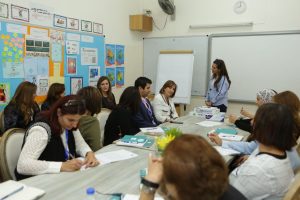
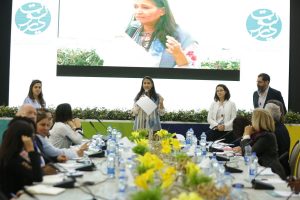 Samar Dudin, director of Ruwwad and the lead facilitator of the 2nd day concluded, together with Haifa Najjar, the roundtable, with a promise to return to the participants with concrete suggestions on how this collective process is to be taken forward, including the firm intention of founding a Center for Integral Education, as an institutional space and driver for the transformative process to follow. Trans4m is now co-engaging with the Jordanian Core Team to help defining and catalysing this vital process.
Samar Dudin, director of Ruwwad and the lead facilitator of the 2nd day concluded, together with Haifa Najjar, the roundtable, with a promise to return to the participants with concrete suggestions on how this collective process is to be taken forward, including the firm intention of founding a Center for Integral Education, as an institutional space and driver for the transformative process to follow. Trans4m is now co-engaging with the Jordanian Core Team to help defining and catalysing this vital process.
In addition to Trans4m founders Ronnie Lessem and Alexander Schieffer, also over ten Trans4m Fellows participated actively in the roundtable, with Tony Bradley from the UK, drawing on his Celtic traditions, Chipo Ndudzo from Zimbabwe, drawing especially on her own indigenous culture, and Manar Al-Nimer from Medlabs in Jordan, presenting each the integral theory and practice they have developed in their particular educational institutions or enterprises. Other participating Trans4m Fellows included: Sara Khan, South Africa; Sister Esther Shebi, Nigeria; Nkosi Moyo, Daud and Christina Taranhike, Smart Phiri Zongololo and Wellington Mutyanda from Zimbabwe; and Faraj Ghunaim from Palestine. (Note: All Fotos Credit to Babel Studio, Amman)
